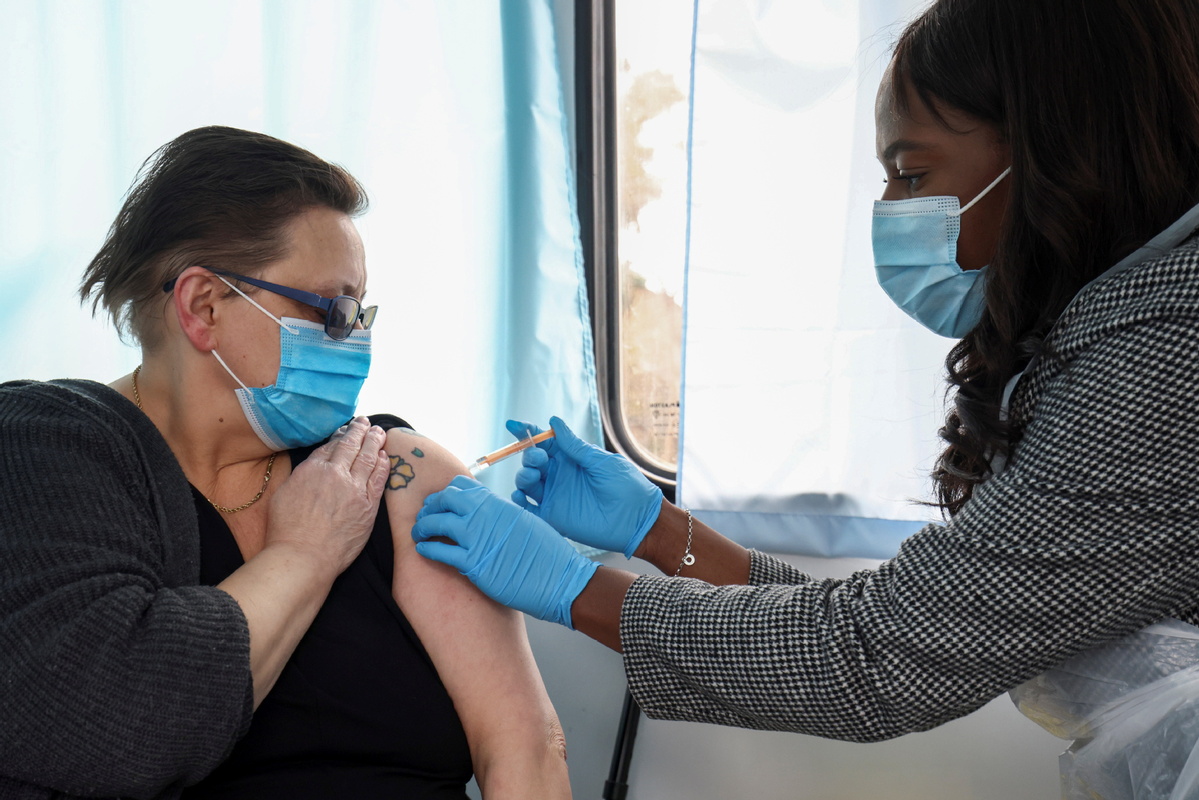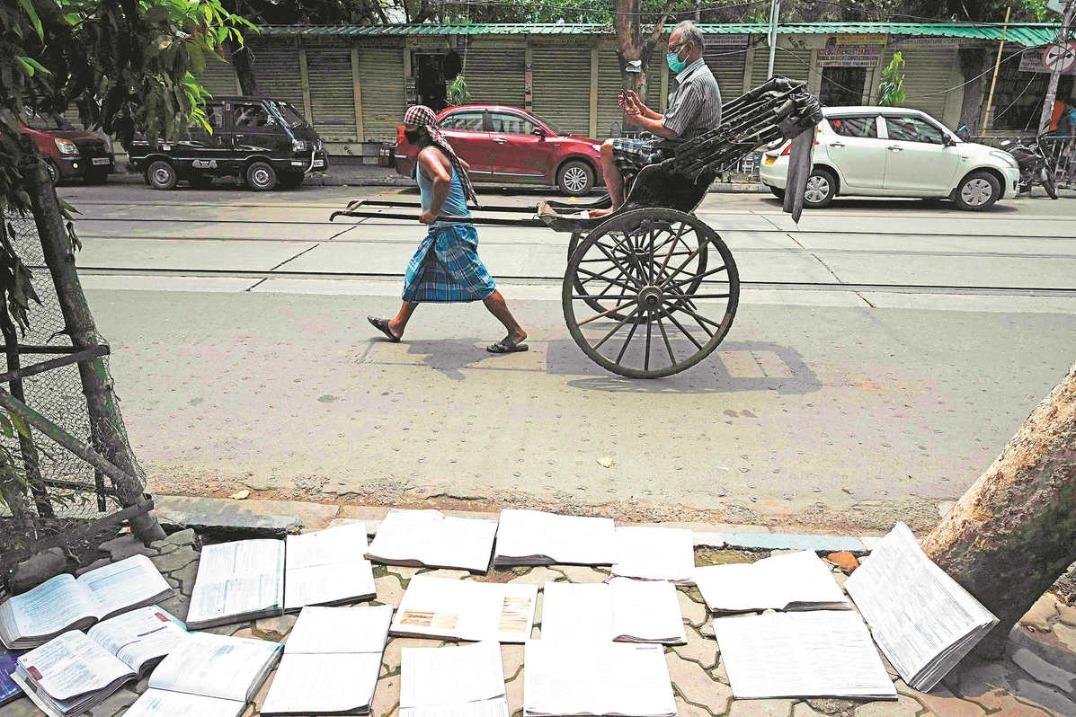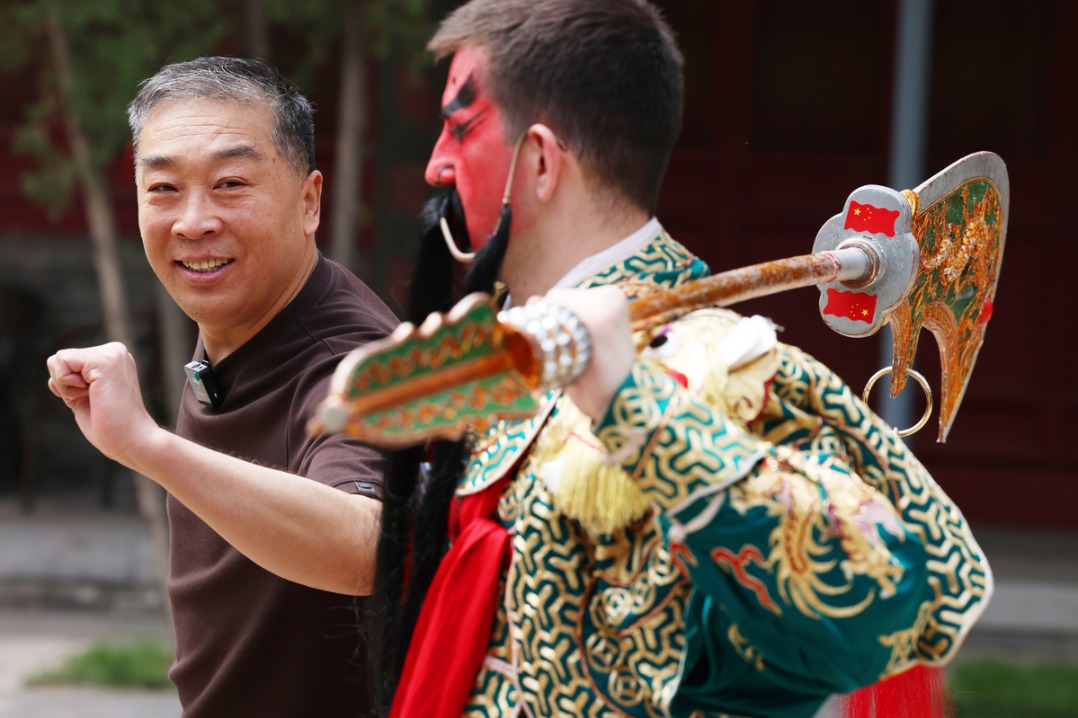Human challenge trial cleared
By ANGUS MCNEICE and JULIAN SHEA in London | China Daily Global | Updated: 2021-02-18 09:30

Signoff on ethical grounds enables study on UK volunteers given virus
Volunteers will be intentionally exposed to the novel coronavirus in the United Kingdom as part of a method of testing potential COVID-19 vaccines.
An ethics committee at the UK Health Research Authority has given the green light for so-called human challenge studies in which participants will be infected with the virus and then receive candidate vaccines to test treatment efficacy.
The ethical approval comes after the UK government signed a contract in October with biotechnology company Open Orphan, whose subsidiary hVIVO will run the studies at the Royal Free London NHS Foundation Trust's specialist clinical research unit.
HVIVO will now collaborate with researchers at Imperial College London on the first steps. These include a characterization study that will establish the lowest dose of virus that leads to infection. This part of the trial will "commence shortly", according to Open Orphan, and involve 90 volunteers aged 18 to 30 that will be confined to a quarantine facility.
Once the appropriate viral dose has been established, a different round of volunteers will be used in vaccine testing.
Human challenge trials, which generally involve around 100 volunteers, provide a quick and efficient way to test if a vaccine works, as researchers can guarantee that participants in the study have come into contact with a virus.
Traditional field trials for vaccines have to be much larger, usually involving tens of thousands of people, and can be delayed if public health measures such as lockdowns are in place, because they interrupt the spread of disease through a population.
Christopher Chiu, who is an infectious disease doctor at Imperial College London, and chief investigator on the characterization study, said:"While the first wave of vaccines are being rolled out, human challenge studies could also be pivotal in helping to shape the timings and doses of existing vaccines, finding out how long one dose is protective for, and if they are effective against new variants of the virus."
Challenge trials pose ethical concerns, and are usually limited to nonlethal diseases such as the common cold, or ailments for which highly effective treatments exist.
Concerns raised
The medical community has been split over whether COVID-19 is too dangerous for this kind of study. Some experts say not enough is yet known about the long-term effects of the virus to go forward with such studies.
Others say the risk of serious illness among young and healthy volunteers is low, and that these trials would greatly benefit the wider population by speeding up vaccine development.
On Wednesday, 12,718 cases were recorded in UK, a major reduction from figures in excess of 60,000 in early January. However, last July the figure was down to 370 and since August the daily figure has been above 1,000.
British Prime Minister Boris Johnson has been urged to look at data rather than dates as speculation grows about next week's announcement over his so-called road map out of restrictions.
In recent weeks, COVID-19 cases have declined significantly, and if that rate continues, by the start of April, the figure could be down to fewer than 1,000 per day.
Globally, there were 109,901,391 confirmed cases and 2,430,096 deaths as of Thursday afternoon, according to a tally kept by Johns Hopkins University.
India will make COVID-19 molecular tests mandatory for people arriving directly or indirectly from the United Kingdom, South Africa and Brazil in a bid to contain the spread of more infectious virus variants found in those countries.
The government late on Wednesday said airlines would be required from next week to segregate inbound travelers from those countries. India detected the variant first identified in South Africa in four people last month and the variant from Brazil in one person this month.
The country's COVID-19 tally rose to 10,950,201 on Thursday, as 12,881 new cases were registered during the latest 24-hour period, data from the federal health ministry showed.
Chen Yingqun in Beijing and agencies contributed to this story.























